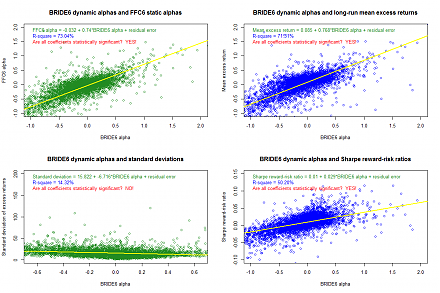

2020-01-15 08:31:00 Wed ET
technology antitrust competition bilateral trade free trade fair trade trade agreement trade surplus trade deficit multilateralism neoliberalism world trade organization regulation public utility current account compliance
Anti-competitive corporate practices may stifle U.S. innovation. In recent decades, wage growth, economic output, and productivity tend to stagnate as U.S. income and wealth inequality rises due to the pervasive increase in the market share and profitability of the most dominant tech titans. This dominance prevails across many bellwether industries such as telecommunication (e.g. AT&T, Sprint, T-Mobile, and Verizon), e-commerce (Amazon, Alibaba, and eBay), social media (Facebook and Twitter etc), digital music and video (Apple, Disney, HBO, Netflix, Spotify, and YouTube), mobile technology (Apple, Samsung, and HuaWei etc), cloud software (Google and Microsoft), finance (Bank of America, Citigroup, Goldman Sachs, JPMorgan Chase, Morgan Stanley, and Wells Fargo), and air transport (Delta and Southwest etc).
From 1987 to 2016, the total share of U.S. employment by big firms with more than 5,000 employees surges from 28% to 34%, and the average share of revenue by the top 4 tech titans in each of the 900 economic sectors grows from 26% to 32%. These economic trends show that tech titans garner much market power with anti-competitive corporate practices. Antitrust regulators now probe into the borderline practices that may inadvertently stifle American innovation by smaller startups and other lean enterprises.
If any of our AYA Analytica financial health memos (FHM), blog posts, ebooks, newsletters, and notifications etc, or any other form of online content curation, involves potential copyright concerns, please feel free to contact us at service@ayafintech.network so that we can remove relevant content in response to any such request within a reasonable time frame.
2019-10-03 17:39:00 Thursday ET

President Trump indicates that he would consider an interim Sino-American trade deal in lieu of a full trade agreement. The Trump administration defers high
2019-03-17 14:35:00 Sunday ET

U.S. trade rep Robert Lighthizer proposes America to require regular touchpoints to ensure Sino-U.S. trade deal enforcement. America has to maintain the thr
2018-10-30 10:41:00 Tuesday ET

Personal finance author Ramit Sethi suggests that it is important to invest in long-term gains instead of paying attention to daily dips and trends. It
2025-10-09 11:30:00 Thursday ET

Stock Synopsis: With a new Python program, we use, adapt, apply, and leverage each of the mainstream Gemini Gen AI models to conduct this comprehensive fund
2019-08-08 09:35:00 Thursday ET

Kobe Bryant and several other star athletes have been smart savvy investors. In collaboration with former Web.com CEO Jeff Stibel, the NBA champion invests
2023-01-03 09:34:00 Tuesday ET

USPTO fintech patent protection and accreditation As of early-January 2023, the U.S. Patent and Trademark Office (USPTO) has approved